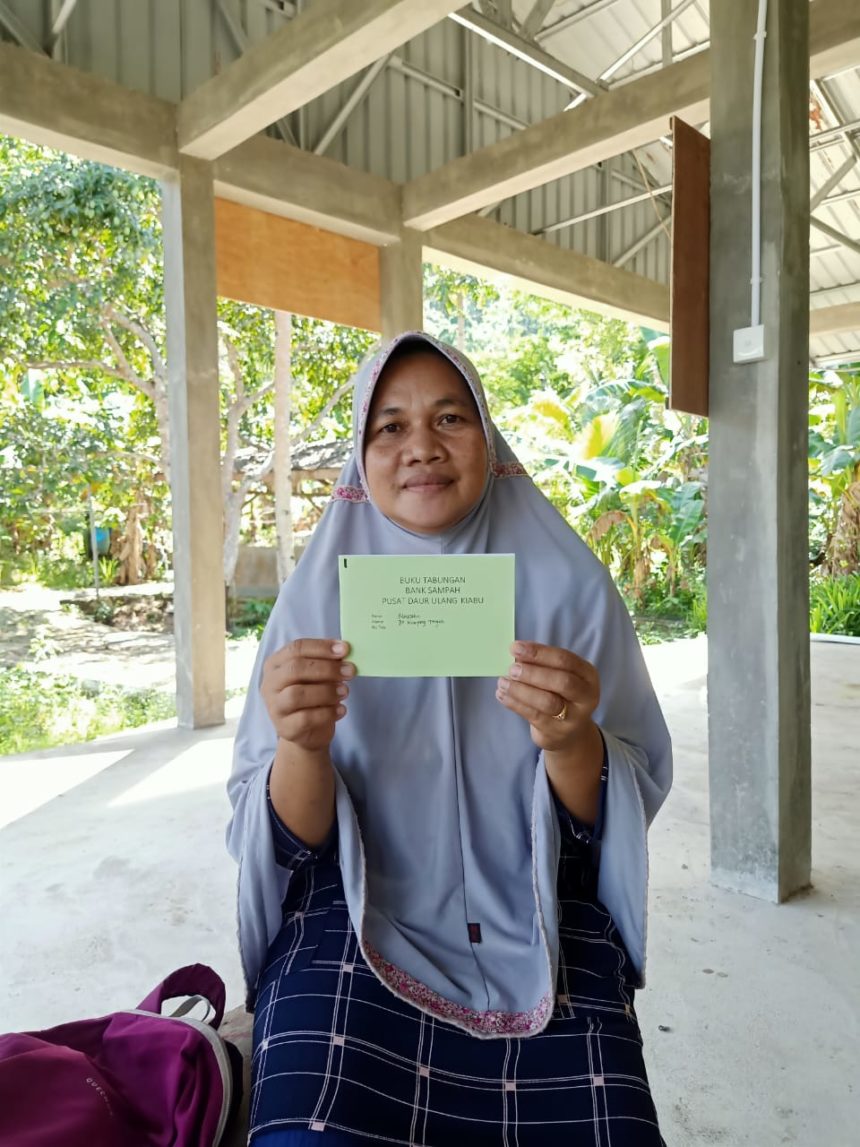Everything you need to know about our new waste bank initiative in Kiabu Village.
What is a waste bank?
It is a concept similar to that of a regular bank, but instead of money, people deposit recyclable waste to a waste bank in exchange for money. The waste deposited are weighed and valued, based on rates set by the waste bank. Each customer is then given a logbook where they can track the amount of waste they collect and the money they receive.
Waste banks are common in Java, Sulawesi and Kalimantan[1] but in Anambas Islands it’s still a foreign concept.
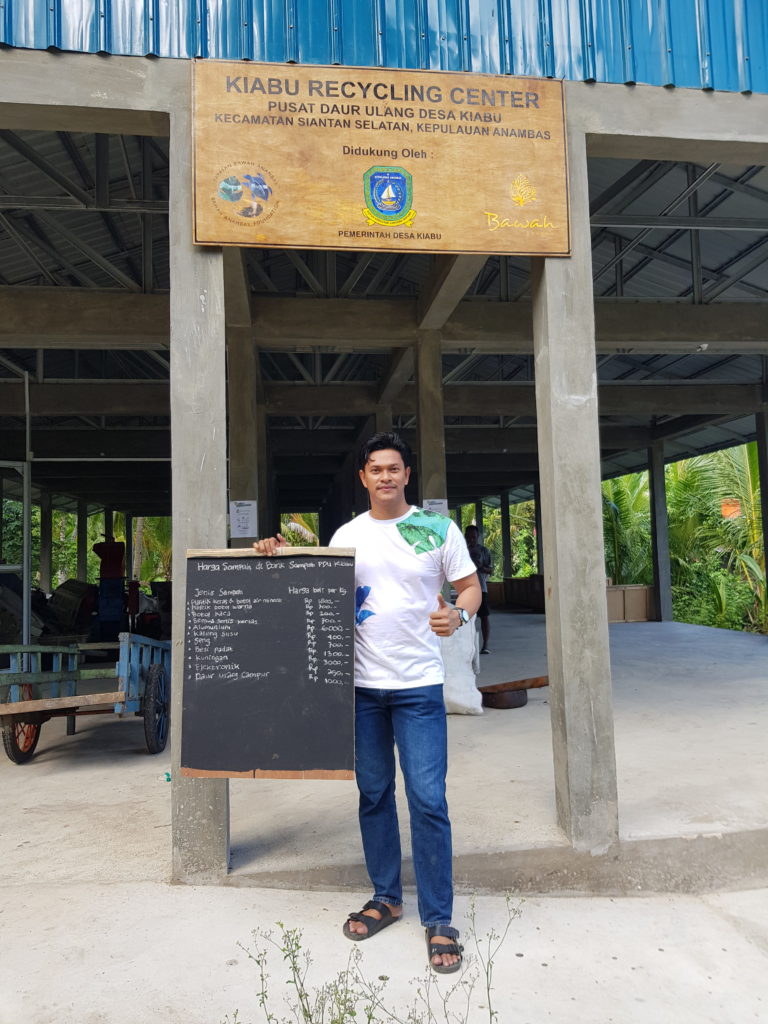
Why established a waste bank in Kiabu? And when it was established?
Through this waste bank, we aim to improve the waste separation process in Kiabu, educate the local community on the value of waste so they don’t discard them irresponsibly, and act as a platform that provides an alternative source of income for them. It’s also our way of supporting the Indonesian government’s target of reducing 30% of nation’s waste and improving the waste management by 70% by 2021. The waste bank officially kicked off in May 2021 and it’s the first waste bank in Anambas Islands.
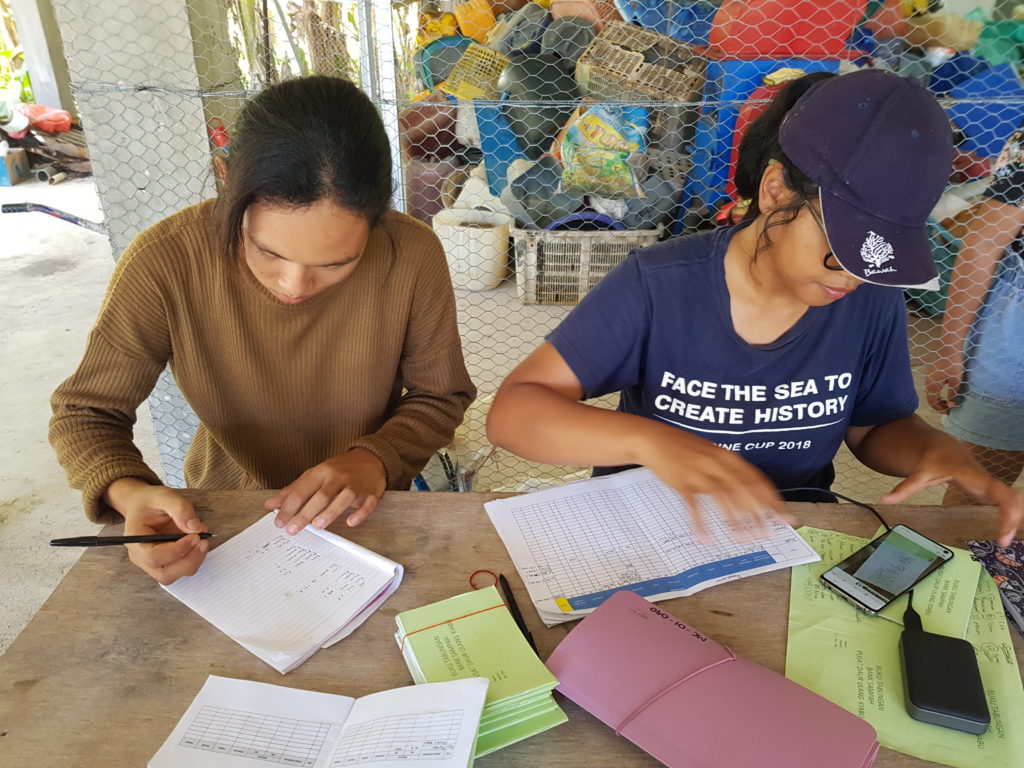
Where is the location of the waste bank and what are the hours of operation?
Our Waste Bank is located at the Recycling Centre in Kiabu, available every Friday from 08:00 a.m. to 4 p.m.
What does the Waste Bank do with the waste?
We upcycle them and turn them into new products such as eco-bricks that are made from shredded plastic waste, styrofoams, crushed glass and cement. For waste that we can’t process at the Recycling Center, we ship them to a local recycling agent in Tarempa.
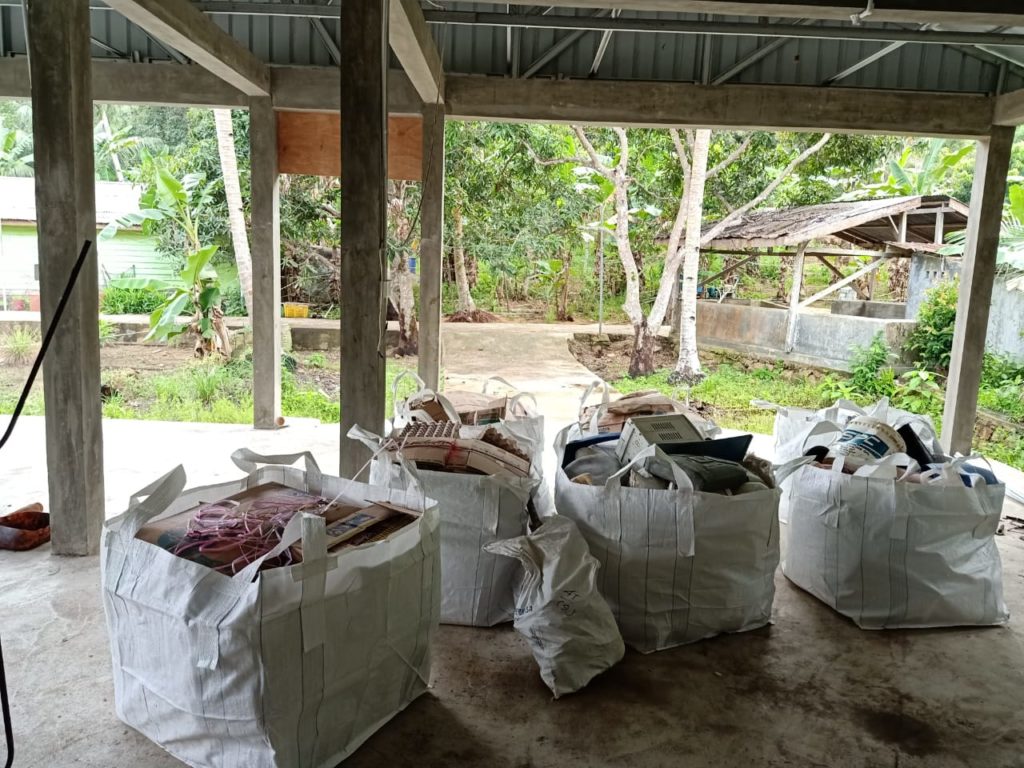
How have the progress and reception been so far?
As of September this year, we’ve received 4.3 tonnes of waste, which is equivalent to seven million Rupiah. There are 65 active customers who come every week to submit their waste and this initiative has been well received by the community.
We are also working together with members of Women’s Group in Kiabu to make 100 large reusable waste bags for Kiabu residents, these bags will help them to store the waste they’ve collected at home for the Waste Bank.
What are the challenges and what’s next?
We are planning to expand the Waste Bank to other locations in Anambas Islands, of course this is not an easy thing due to the logistics of transferring the waste to other parts of Anambas. And another challenge that we have to overcome is changing the behavior of the local communities to be more mindful of their waste and educate them on the economic value of waste.
Source:
[1] https://blogs.worldbank.org/eastasiapacific/waste-not-want-not-waste-banks-indonesia
